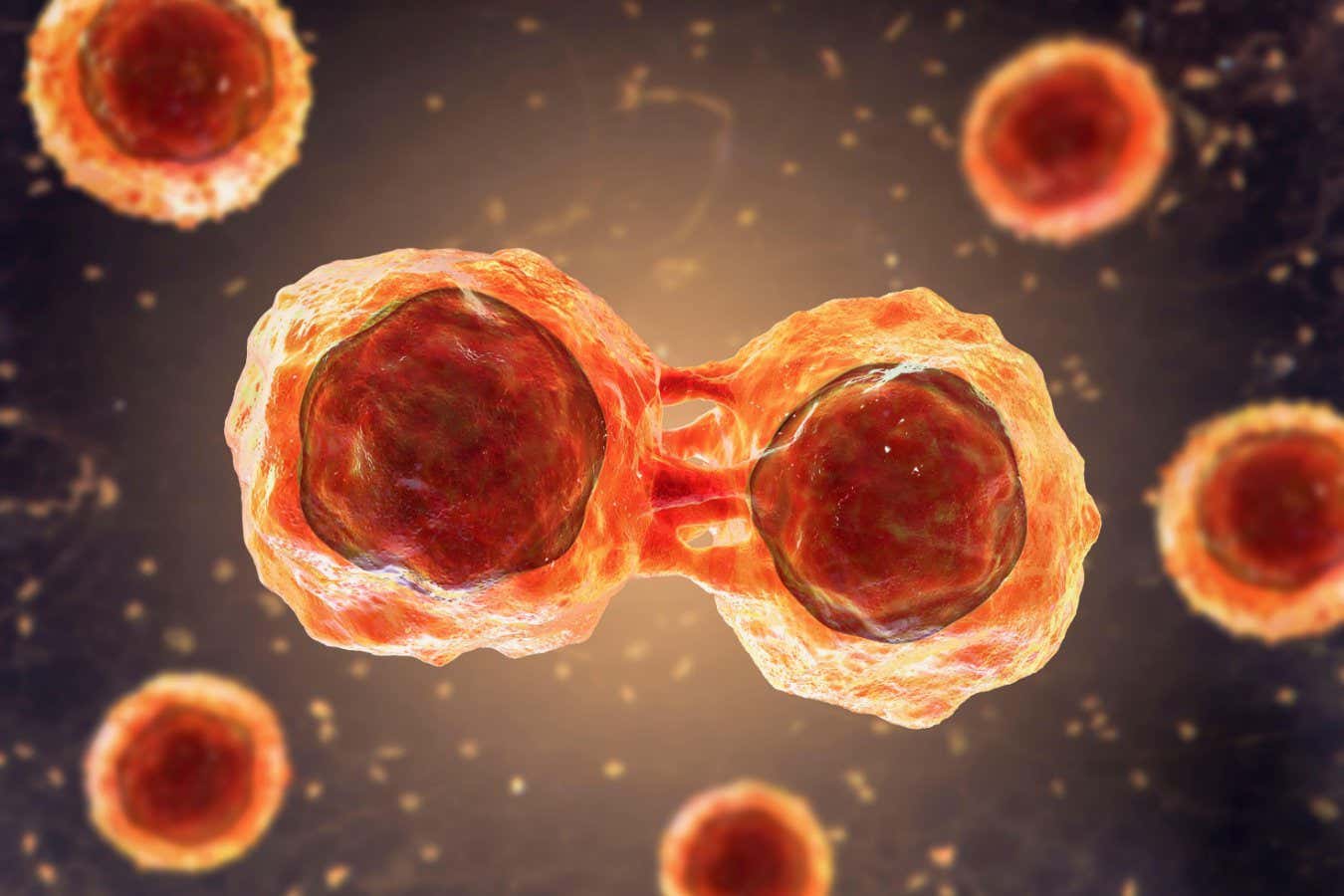Stem cells made in the lab may one day aid cancer treatment by reducing our reliance on donors
By James Woodford
2 September 2024
Stem cells are produced by bone marrow and can turn into different types of blood cells
KATERYNA KON / SPL/ Alamy
Human blood stem cells have been made in a laboratory for the first time, which could significantly improve how we treat certain types of cancer.
The lab-grown cells have so far only been tested in mice, but when infused into the animals, the cells became functional bone marrow at similar levels to those seen after umbilical cord blood cell transplants.
Read more
A new understanding of how your blood type influences your health
Advertisement
Treating cancers such as leukaemia and lymphoma via radiation and chemotherapy can destroy the blood-forming cells in bone marrow. A stem cell transplant means that new, healthy bone marrow and blood cells can grow. Umbilical cords are a particularly rich source of stem cells, but donations are limited and the transplant can be rejected by the body.
The new method would allow researchers to produce stem cells from the actual patient, eliminating the supply issue and reducing the risk that their body would reject them.
First, human blood or skin cells were turned into so-called pluripotent stem cells through a process called reprogramming. “This involves temporarily turning on four genes, with the result that the patient cells revert to an early stage of development when they can become any cell in the body,” says Andrew Elefanty at the Murdoch Children’s Research Institute in Melbourne.
